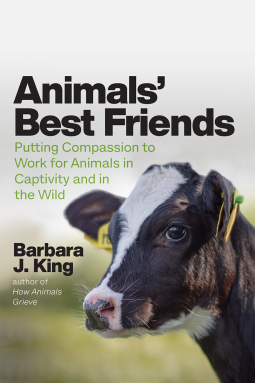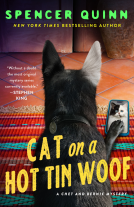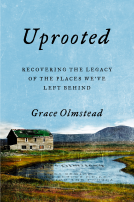
Animals' Best Friends
Putting Compassion to Work for Animals in Captivity and in the Wild
by Barbara J. King
This title was previously available on NetGalley and is now archived.
Send NetGalley books directly to your Kindle or Kindle app
1
To read on a Kindle or Kindle app, please add kindle@netgalley.com as an approved email address to receive files in your Amazon account. Click here for step-by-step instructions.
2
Also find your Kindle email address within your Amazon account, and enter it here.
Pub Date Mar 23 2021 | Archive Date Mar 01 2021
Talking about this book? Use #AnimalsBestFriends #NetGalley. More hashtag tips!
Description
Finalist for the 2021 Siskiyou Prize for New Environmental Literature
As people come to understand more about animals’ inner lives—the intricacies of their thoughts and the emotions that are expressed every day by whales and cows, octopus and mice, even bees—we feel a growing compassion, a desire to better their lives. But how do we translate this compassion into helping other creatures, both those that are and are not our pets? Bringing together the latest science with heartfelt storytelling, Animals’ Best Friends reveals the opportunities we have in everyday life to help animals in our homes, in the wild, in zoos, and in science labs, as well as those considered to be food.
Barbara J. King, an expert on animal cognition and emotion, guides us on a journey both animal and deeply human. We meet cows living relaxed lives in an animal sanctuary—and cows with plastic portals in their sides at a university research station. We observe bison free-roaming at Yellowstone National Park and chimpanzees confined to zoos. We learn with King how to negotiate vegetarian preferences in omnivore restaurants. We experience the touch of a giant Pacific octopus tasting King’s skin with one of his long, neuron-rich arms. We reflect on animal testing as King shares her own experience as the survivor of a particularly nasty cancer. And in a moment all too familiar to many of us, we recover from a close encounter with two spiders in the home.
This is a book not of shaming and limitation, but of uplift and expansion. Throughout this journey, King makes no claims of personal perfection. Though an animal expert, she is just like the rest of us: on a journey still, learning each day how to be better, and do better, for animals. But as Animals’ Best Friends makes clear, challenging choices can bring deep rewards. By turning compassion into action on behalf of animals, we not only improve animals’ lives—we also immeasurably enrich our own.
Advance Praise
Jeff VanderMeer, author of the New York Times–bestselling Southern Reach Trilogy
“A stunning and deeply beautiful accomplishment. Required reading for anyone who wants to better understand the complexities and contradictions of our interactions with animals. And for anyone who wants to have a deeper and more useful relationship with the natural world. I learned a lot reading it. An instant classic.”
Sy Montgomery, author of "The Soul of an Octopus: A Surprising Exploration into the Wonder of Consciousness"
“Even as we struggle to be compassionate, it’s difficult to live in the world without hurting animals. What’s an animal lover to do? This question is at the heart of this important book by King, whose writing, thinking, and teaching about the minds and feelings of animals, and our responsibilities to them, is justly celebrated. Happily, there are many ways to help, from the kitchen to the ballot box. And helping animals is not all-or-nothing. Crucially, King points out ways we can help with great compassion not only for the animals, but also for the people making sometimes difficult choices. Animals’ Best Friends will be a guiding light not only to philosophers and ethicists, but also to caring people everywhere who hope to bring the power of human empathy to the choices we make that affect animals’ lives.”
Frans de Waal, author of "Mama’s Last Hug: Animal Emotions and What They Tell Us about Ourselves"
“Our relation with animals is fraught with conflicting emotions. We like to eat some, seek to eradicate others, yet adore and spoil our pets like family members. King describes her own moral dilemmas and the personal solutions she has found, always with love and respect shining through. This book will help its readers articulate their own attitudes.”
Stuart Shanker, author "Reframed: Self-Reg for a Just Society" and "Self-Reg: How to Help Your Child (and You) Break the Stress Cycle and Successfully Engage with Life"
“Animals’ Best Friends is a wonderful book: beautifully written, deeply moving, and fascinating throughout. The stories and research that King tells about the wonders of animal life enable the reader to share in her own enduring sense of hope: Not just for animals in captivity and in the wild, but through and with them, for our own species as well.”
Available Editions
| EDITION | Other Format |
| ISBN | 9780226601489 |
| PRICE | $29.00 (USD) |
| PAGES | 280 |
Average rating from 4 members
Featured Reviews
 Melise G, Reviewer
Melise G, Reviewer
I have never read any of Barbara King’s books before (although How Animals Grieve has been on my TBR list for a long time), but after reading this one, I am definitely going to be reading more by her. She writes beautifully about the ways that humans interact with animals, helping the reader to rethink our own interactions with the animals around us. Although she definitely has a point of view, her writing never becomes preachy, and was a pleasure to read throughout.
Thanks to the publishers for providing me with an advanced reading copy via NetGalley.
Even as someone with a strong interest in animals and the subject of relationships between humans and other species, it has seemed to me that a lot of books which are very much alike have been published over the years.
What makes this book different is that it explores the grey areas between opposing views rather than staking out a position at one extreme. As such, it might be best suited for those who are willing to think about the subjects rather than those only seeking reinforcement of their views. Which isn’t to say that the author is not a strong advocate for animals in every case—the goal of the book is to encourage people to act to help animals through compassionate action.
The book is divided into five areas in which animal lives are affected by people—in human homes, in nature, in zoos, as food, and in research labs. Those might seem like standard categories for a book like this, but would you expect the homes chapter to begin with spiders, or that rabbits would be the first topic in the food chapter rather than in the testing chapter? Those are examples of how wide-ranging the book is, with a mix of personal anecdotes, news stories, and scientific studies.
One subject is that people sometimes turn away from information in self-defense, and I admit to finding the chapters on food and testing much more difficult to read than the other chapters. These two chapters are nuanced by the facts that the author is not a vegan, and is a cancer survivor.
No easy answers, no pressure to be perfect, only encouragement and reasons to help animals.
Thanks to The University of Chicago Press and NetGalley for an early copy to review.






